Keynote Speaker
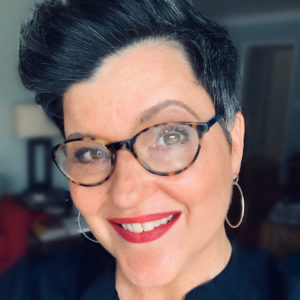
Karen Kelsky
Writer, Speaker, CEO
Talk Title: Managing the Academic Job Search
Karen Kelsky is the Founder and CEO of The Professor Is In, a full-service individual and institutional consultancy on the academic job search and all elements of the academic and post-academic career. She speaks nationally and internationally on topics related to Ph.D. professionalization, and is a columnist at Chronicle Vitae. As the creator of the Sexual Harassment in the Academy Survey and the #MeTooPhD hashtag, Karen speaks nationally on issues of sexual assault in the academy, with a focus on empowering victims and training people in leadership. She is a former tenured professor and department head at the University of Illinois at Urbana-Champaign and University of Oregon. Her book The Professor Is In: The Essential Guide to Turning Your Ph.D. Into a Job (Random House 2015), is going into a second edition. Check out the Professor Is In podcast. Also, find her on Facebook at The Professor Is In and The Professor Is Out, on Twitter, and in her 2021 TEDx talk, Academia Is a Cult.
Karen Kelsky is the Founder and CEO of The Professor Is In, a full-service individual and institutional consultancy on the academic job search and all elements of the academic and post-academic career. She speaks nationally and internationally on topics related to Ph.D. professionalization, and is a columnist at Chronicle Vitae. As the creator of the Sexual Harassment in the Academy Survey and the #MeTooPhD hashtag, Karen speaks nationally on issues of sexual assault in the academy, with a focus on empowering victims and training people in leadership. She is a former tenured professor and department head at the University of Illinois at Urbana-Champaign and University of Oregon. Her book The Professor Is In: The Essential Guide to Turning Your Ph.D. Into a Job (Random House 2015), is going into a second edition. Check out the Professor Is In podcast. Also, find her on Facebook at The Professor Is In and The Professor Is Out, on Twitter, and in her 2021 TEDx talk, Academia Is a Cult.
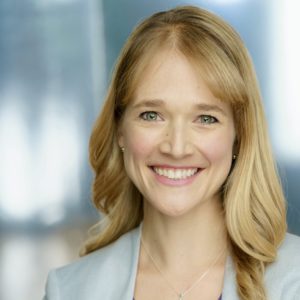
Bri McWhorter
Activate to Captivate
CEO
Talk Title: Learning to Lead
During your career, there will be times when you are asked to step into a leadership position. This transition often happens quickly so it is important to be prepared. This workshop will highlight helpful phrases to encourage a collaborative environment, how to prepare for various meetings, and how to craft clear and concise content. Whether you're interested in a job in academia or industry, this workshop will help you step into a leading role.
Bri McWhorter is the Founder and CEO of Activate to Captivate, where she teaches communication techniques from an actor’s point of view. She specializes in public speaking, scientific communications, interview skills, and interpersonal communications. She has taught workshops at Fortune 500 companies, privately coached VPs and CEOs, and led certificate programs at top universities. She has an MFA in Acting from University of California, Irvine and a BA in Theater and Performance Studies from University of California, Berkeley.
During your career, there will be times when you are asked to step into a leadership position. This transition often happens quickly so it is important to be prepared. This workshop will highlight helpful phrases to encourage a collaborative environment, how to prepare for various meetings, and how to craft clear and concise content. Whether you're interested in a job in academia or industry, this workshop will help you step into a leading role.
Bri McWhorter is the Founder and CEO of Activate to Captivate, where she teaches communication techniques from an actor’s point of view. She specializes in public speaking, scientific communications, interview skills, and interpersonal communications. She has taught workshops at Fortune 500 companies, privately coached VPs and CEOs, and led certificate programs at top universities. She has an MFA in Acting from University of California, Irvine and a BA in Theater and Performance Studies from University of California, Berkeley.
Organizing Committee
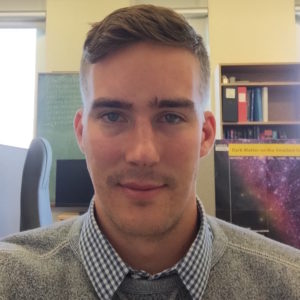
Connor Bottrell
Kavli Institute for the Physics and Mathematics of the Universe at University of Tokyo
Postdoctoral Fellow
I am a first-year postdoc at Kavli IPMU. I received my PhD at the University of Victoria in Canada. My research focuses on the evolution of galaxies using both numerical and observational approaches. I am particularly interested in galaxy mergers, and whether more detailed characterizations of galaxy mergers are possible through machine learning.
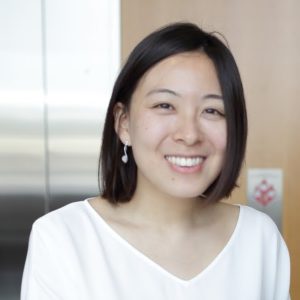
Hsin-Yu Chen
Kavli Institute for Astrophysics and Space Research at MIT
NASA Einstein Fellow / MIT Kavli Fellow
Hsin-Yu is currently a NASA Einstein Fellow at MIT. She got her PhD from the Department of Astronomy and Astrophysics, University of Chicago. Before MIT, she was a Black Hole Initiative Fellow at Harvard University.
Hsin-Yu’s research interest is in gravitational-wave astrophysics and cosmology. She’s a member of the LIGO Scientific Collaboration and the LISA Consortium. With Advanced LIGO-Virgo’s gravitational-wave detection of compact binary mergers, she is trying to answer the questions like how old the Universe is, how matter behaves at the low-temperature and high density environments in neutron stars, and how much heavy elements were emitted from neutron mergers.
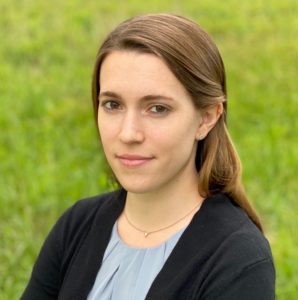
Susan Clark
Kavli Institute for Particle Astrophysics and Cosmology at Stanford University
Assistant Professor (appointment starting Fall 2021)
Susan E. Clark in an incoming Assistant Professor of Physics at Stanford University (starting September 2021). Clark got her B.S. in Physics from the University of North Carolina at Chapel Hill and her Ph.D. in Astrophysics from Columbia University. Prior to joining the Stanford faculty, Clark was a NASA Hubble Fellow and Member at the Institute for Advanced Study.
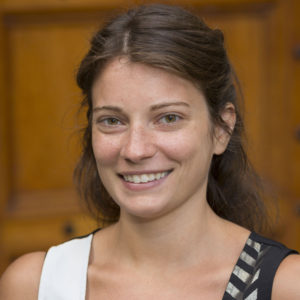
Danielle Norcini
Kavli Institute for Cosmological Physics at University of Chicago
KICP & Grainger Fellow
Danielle Norcini received her Ph.D. from the Wright Laboratory at Yale University. She helped lead the R&D and construction of the PROSPECT detector to measure neutrinos at very short distances from the High Flux Isotope Reactor in Oak Ridge, TN. As a KICP and Grainger fellow, she is developing low-threshold detectors to search for dark matter and measure neutrino properties. Outside the lab, you can find Danielle at home experimenting with baking ratios, reading interior design blogs, or by the lake playing with her dog Kip.
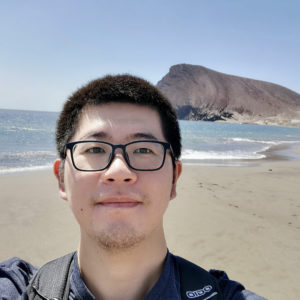
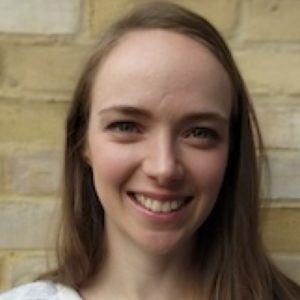
Naomi Robertson
Kavli Institute for Cosmology at University of Cambridge
PDRA
I have been a PDRA at the KICC since October 2019. I work on weak gravitational lensing and I'm particularly interested in using weak lensing and CMB data sets together as well as galaxy clusters as cosmological probes. I am part of the KiDS, ACT and Simons Observatory collaborations.
Before moving to Cambridge I completed my PhD at the University of Oxford with Prof. Jo Dunkley and Prof. Lance Miller and prior to that I completed my Masters thesis with Prof. Catherine Heymans at the University of Edinburgh.
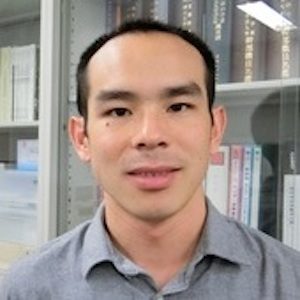
Kenneth Wong
Kavli Institute for the Physics and Mathematics of the Universe at University of Tokyo
Project Researcher
B.S. Physics, University of California - Davis, 2007
Ph.D Astronomy, University of Arizona, 2013
EACOA Fellow, ASIAA/NAOJ, 2013-2018
Project Researcher, Kavli IPMU, 2018-2021
Research interests: Strong gravitational lensing, galaxy evolution, observational cosmology
Attendees
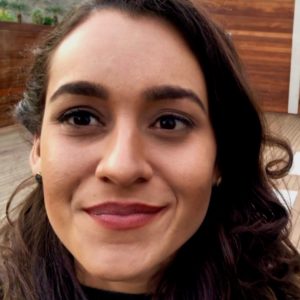
Alexandra Amon
Kavli Institute for Particle Astrophysics and Cosmology at Stanford University
Kavli Fellow
Dr. Alexandra Amon is a Caribbean astrophysicist based at Stanford University as a Kavli Fellow. Her research has focussed on weak lensing and large-scale structure, with large surveys. She studied at the University of Edinburgh and her thesis won the UK’s Royal Astronomical Society Michael Penston Thesis Prize for the best PhD in the field. In addition, she was the runner up for the UK’s Institute of Physics Jocelyn Bell Burnell Medal for the woman who has made exceptional contributions to the field of physics. Popular in science communication, she has featured on Al Jazerra’s The Stream and PBS ‘Ancient Skies’. Now, she plays a leading role in the Dark Energy Survey’s key cosmology analysis. In the Fall, she will be a Senior Kavli Fellow at Cambridge University.
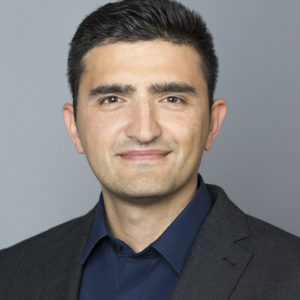
Metin Ata
Kavli Institute for the Physics and Mathematics of the Universe at University of Tokyo
I am a Postdoc at IPMU working in numerical and theoretical aspects of Cosmology and large-scale structures.
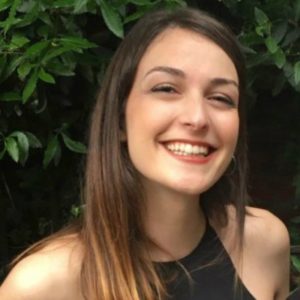
Susanna Azzoni
Kavli Institute for the Physics and Mathematics of the Universe at University of Tokyo
PhD Student
I am a PhD student between Oxford, where I'm working with Prof. David Alonso and Dr Maximilian Abitbol, and the Kavli IPMU in Tokyo where my supervisors are Prof. Tomotake Matsumura and Prof. Nobuhiko Katayama.
I study the physics of the early Universe through the Cosmic Microwave Background (CMB), the oldest observable light in the Universe. Most of my work is related to two CMB experiments (the Simons Observatory and LiteBIRD) where I analyze polarization measurements and am interested in the imprint of inflation.
Prior to my PhD, I graduated joint BSc (Hons) Physics and Philosophy from King’s College London in 2018. This included a year as a student at large at the University of Chicago. Following completion of my BSc, I moved to the Jodrell Bank Centre for Astrophysics in Manchester to work on sub-kelvin cryogenics in the Cosmology Group, where I completed my MSc by Research.
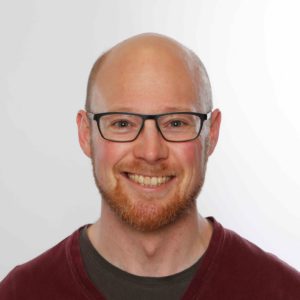
Simon Birrer
Kavli Institute for Particle Astrophysics and Cosmology at Stanford University
Kavli Postdoctoral Fellow
I am a Kavli Postdoctoral Fellow at the Stanford University in the Kavli Institute for Particle Astrophysics and Cosmology (KIPAC). Before joining Stanford, I was a Postdoctoral Scholar at University of California, Los Angeles (UCLA) in the department of Physics and Astronomy and I did my PhD at ETH Zurich in the cosmology research group. My current research focus on dark matter and dark energy. I am using strong gravitational lensing to probe the imprint of dark matter on the structure in our Universe and measuring the expansion rate of our Universe with time-delay cosmography to probe dark energy. My scientific expertise is the interface between the exquisite data sets available on one side and the fundamental theory predictions on the other side. I am actively developing advanced computational and statistical tools - publicly available - to contribute the community in pushing the boundaries of our knowledge sphere.
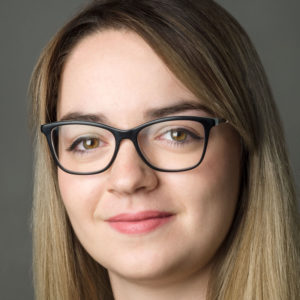
Sylvia Biscoveanu
Kavli Institute for Astrophysics and Space Research at MIT
PhD Student
I am a PhD candidate at MIT working on gravitational-wave data analysis in the LIGO Laboratory under the supervision of Assistant Professor Salvatore Vitale. I am a Paul and Daisy Soros Fellow and a National Science Foundation Graduate Research Fellow. My research interests include parameter estimation for compact binary coalescences, multimessenger astronomy, gamma-ray burst jet structure, and stochastic gravitational-wave backgrounds. Before starting my PhD at MIT, I was a Fulbright Postgraduate Scholar at Monash University in Melbourne, Australia, working on LIGO data analysis with Professor Eric Thrane.
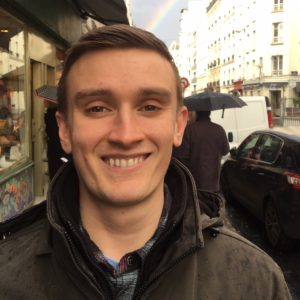
Chad Bustard
Kavli Institute for Theoretical Physics at UC Santa Barbara
Postdoctoral Fellow
I'm a first-year postdoc at KITP in Santa Barbara. My research is primarily in plasma astrophysics, specifically using numerical simulations and analytic theory to understand how magnetic fields, cosmic rays, and plasma instabilities affect galaxy evolution. I'm also interested in environmental effects on dwarf galaxies and the formation and survival of multiphase gas in the circumgalactic medium. Before moving to KITP, I was an NSF graduate fellow at University of Wisconsin - Madison. Outside of astrophysics, I enjoy playing tennis and hiking with my dog.
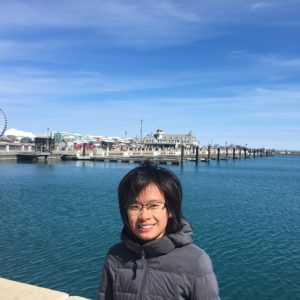
Huanqing Chen
Kavli Institute for Cosmological Physics at University of Chicago
Graduate Student
I am a graduate student working on simulating galaxy formation and cosmic reionization. Currently, I am most interested in quasar proximity zones, a large region where the quasar dominates the radiation field. I study how galaxies evolve in the quasar proximity zones, and how the Lya features in the spectra tell us about the IGM properties and quasar physics. I am also interested in constraining cosmology using the recovered density field at z~6.
When I'm not doing research, I love traveling and doing some volunteering work. I volunteered as a presenter in Adler Planetarium during 2019-2020 B. C. (before coronavirus). I am very much looking forward to the end of the pandemic so I can go back to talking to interesting people in 3D.
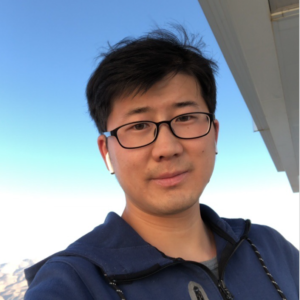
Ping Chen
PhD Student
Kavli Institute for Astronomy and Astrophysics at Peking University-Beijing
I'm a Ph.D. student at KIAA-PKU. I have broad interest in time-domain astronomy. My thesis focus on observational studies on complete samples of nearby type Ia supernovae.
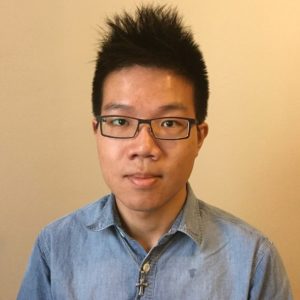
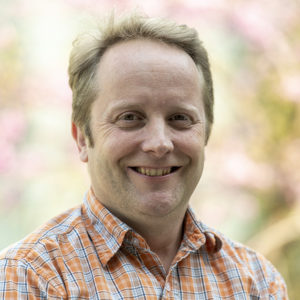
Tom Crawford
Kavli Institute for Cosmological Physics at University of Chicago
Senior Researcher
I'm a Research Professor in the Department of Astronomy & Astrophysics and the Kavli Institute for Cosmological Physics. at the University of Chicago. For the past 18 years, I have worked on a single project: The 10-meter South Pole Telescope (SPT). The SPT is a millimeter-wave telescope designed to make sensitive measurements of diffuse, low-contrast emission, such as anisotropy in the cosmic microwave background (CMB). During my time on this project, I have particpated in the design of the telescope, optics, and receiver; I have designed and built a protoype SPT receiver (which was used to qualify the secondary mirror and cold optics box); I have traveled to the South Pole with four other team members to assemble the primary reflector, and now I am one of the leaders of the data analysis effort (and Deputy Director) of the project. In my spare time, I moonlight as a professional singer.
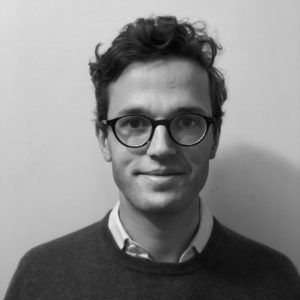
Roger de Belsunce
Kavli Institute for Cosmology at University of Cambridge
PhD Student
I did my Bachelor's at ETH Zurich. Then moved to Stanford to work on Effective Field Theory of large-scale structure with Leonardo Senatore as part of my Master's thesis. Now, I am a PhD student with George Efstathiou, working constraining cosmological parameters by using large-scale structure data from galaxy surveys such as BOSS and DESI (of which I am an active member). Therefore, I use information obtained from galaxy clustering, the Lyman-alpha forest and quasars. In this context, I analyse the baryon acoustic oscillations, measure the power spectrum using absorption features in the spectra of distant quasars, known as the Lyman-a forest, and compute likelihoods to constrain cosmological parameters.
In addition to large-scale structure data analysis, I am interested in developing and testing novel likelihood-free approaches on CMB data from the Planck survey.
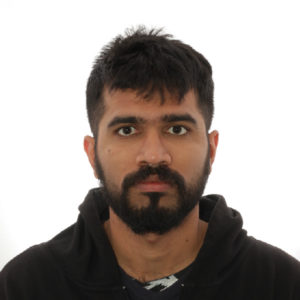
Suhail Dhawan
Kavli Institute for Cosmology at University of Cambridge
Newton-Kavli Fellow
I am a Newton-Kavli fellow at KICC working on cosmology with type Ia supernovae and the search for lensed supernovae. My main interests are in novel probes for measuring the Hubble constant and dark energy, and to develop supernova distances as a precision probe for inferring properties of local large scale structure using large datasets, e.g. from the Zwicky Transient Facility.
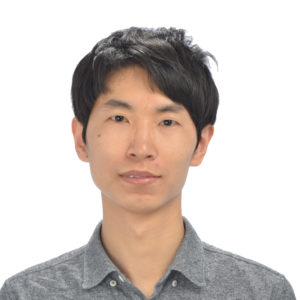
Min Du
Kavli Institute for Astronomy and Astrophysics at Peking University-Beijing
My interests are centered in the formation and evolution of galaxies, mainly using numerical simulations. I am a postdoc supported by the "National Postdoctoral Program for Innovative Talents" Fellowship of China since 2017. I obtained my Ph.D degree at the University of Chinese Academy of Sciences in 2017.
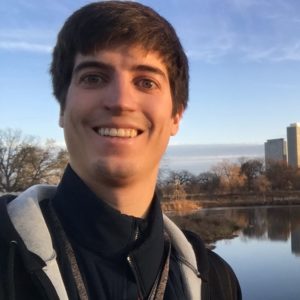
Jose María Ezquiaga
Kavli Institute for Cosmological Physics at University of Chicago
Einstein and KICP fellow
Jose Maria Ezquiaga received his PhD from the Universidad Autonoma de Madrid. His research focuses on probing the pillars of the standard cosmological model with gravitational waves. As a KICP and Einstein Fellow, Jose will exploit LIGO's data to constrain the propagation of gravitational waves, the expansion of the Universe and the origin of the observed black-holes, anticipating as well how to improve such tests with the next generation of detectors, specially with the space antenna LISA.
Apart from thinking about the universe, Jose enjoys simple ground-based activities like outdoor sports, hanging out with friends and exploring Chicago with his bike.
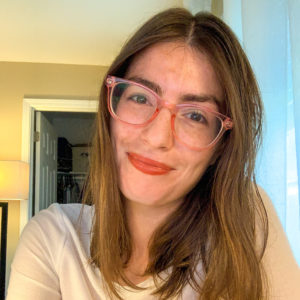
Adi Foord
Kavli Institute for Particle Astrophysics and Cosmology at Stanford University
Porat Postdoctoral Fellow
I am a first year Porat Postdoctoral Fellow at Stanford University. I study the activity of accreting supermassive black holes, across a wide range of wavelengths. Currently, I spend most of my day searching for pairs of accreting supermassive black holes that are in the process of merging. Using multi-wavelength observations and computational methods, I am analyzing how the activity of merging supermassive black holes is linked to the environment, and which factors are critical to their evolution.
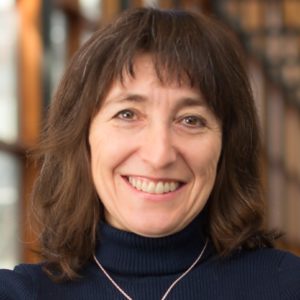
Wendy Freedman
Kavli Institute for Cosmological Physics at University of Chicago
Faculty
Professor Wendy Freedman is the John and Marion University Professor at the University of Chicago. For eleven years (2003-2014) she served as the Crawford H. Greenewalt Director of the Carnegie Observatories in Pasadena, California. A native of Toronto, Canada, she received her doctorate in astronomy and astrophysics from the University of Toronto in 1984. She received a Carnegie Fellowship at the Observatories in 1984, joined the permanent faculty in 1987, and was appointed Director in 2003. From 2003-2015, she served as chair of the Board of Directors for the Giant Magellan Telescope (GMT), a 25-m optical telescope scheduled for construction in Chile in 2029. Her research interests are in observational cosmology; in particular, the measurement of the expansion rate of the universe, as well as in galaxy evolution and the stellar initial mass function.
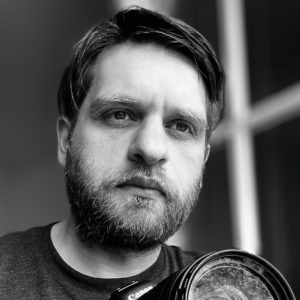
Gabor Furesz
Kavli Institute for Astrophysics and Space Research at MIT
Principal Research Scientist
I develop concepts and detailed designs for astronomical instruments, mainly spectrographs, both in the optical and infrared, be it high or low resolution, single or multi object. I also end up using them for science (studied stellar kinematics in clusters, worked a lot with exoplanets) but building these instruments what i really enjoy and have more talent for. I mostly do optical and opto-mechanical design, systems engineering/architecture development, but as instrument scientist I speak a bit of the electronics, software, data reduction and science languages so I can efficiently orchestrate/manage a group to deliver an instrument that meets the scientific needs. I got to work at many observatories 'on and around' the globe (MMTO, Las Campanas/Magellan, GMTO -- and TESS), with some of our latest concepts looking at cube- and smallsats studying solar/stellar activity from space.
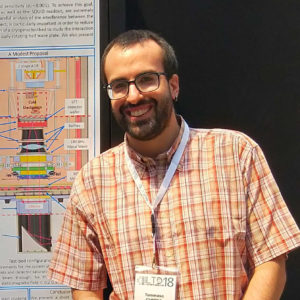
Tommaso Ghigna
Kavli Institute for the Physics and Mathematics of the Universe at University of Tokyo
Postdoc
I am a postdoc at Kavli IPMU working on hardware development for next-generation CMB experiments. I am also interested in data analysis with a focus on modeling instrumental effects to mitigate systematics in the data. I received a Ph.D. from Oxford University (UK) and a Master's degree from Milano-Bicocca University (Italy).
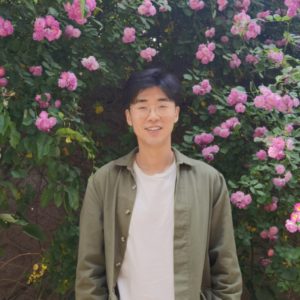
Yucheng Guo
Kavli Institute for Astronomy and Astrophysics at Peking University-Beijing
PhD Student
I am a final-year PhD student at KIAA - PKU
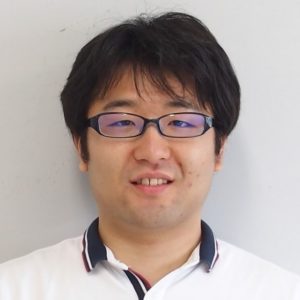
Ryuichiro Hada
Kavli Institute for the Physics and Mathematics of the Universe at University of Tokyo
Postdoc
I am a postdoc at Kavli IPMU. I work on several topics in theoretical and observational cosmology. In particular, I have been focusing on Type Ia supernovae and Baryon Acoustic Oscillations as standard rulers to measure the cosmological distance and the evolution of dark energy, and studying how the clumpy structure of the Universe affects on the distance measurements, e.g., through weak gravitational lensing or peculiar velocities of galaxies. Now I am working on the development and improvement of analysis model to constrain the cosmological parameters with higher precision using the galaxy clustering dataset from PFS.
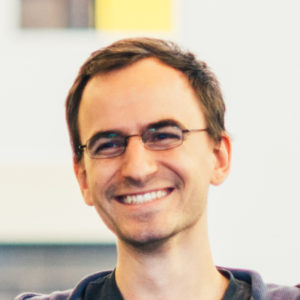
Tilman Hartwig
Kavli Institute for the Physics and Mathematics of the Universe at University of Tokyo
Assistant Professor
I am Tilman Hartwig, an assistant professor at the University of Tokyo. With a background in computational astrophysics, I apply machine learning to better understand the first structures in the Universe (stars, galaxies, black holes).
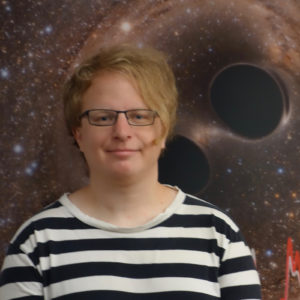
Carl-Johan Haster
Kavli Institute for Astrophysics and Space Research at MIT
Postdoctoral Associate
I am a postdoctoral associate at MKI working on the development and implementation of methods for inferring the astrophysical properties of compact-object binaries as observed through gravitational waves. As the number of individual gravitational wave transients observed by LIGO/Virgo/KAGRA is rapidly increasing since the first detection in 2015, the inference methods used need to improve their computational efficiency and fidelity at a comparable rate in order to keep the science flowing.
With these gravitational wave observations, I am then interested in exploring the deeper nature of how compact objects behave on a fundamental level and how well they can be described through General Relativity.
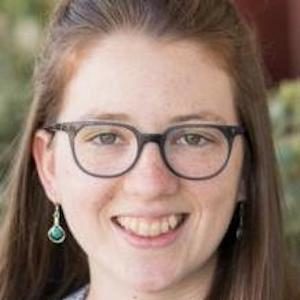
Claire-Alice Hebert
Kavli Institute for Particle Astrophysics and Cosmology at Stanford University
Graduate Student
I'm a 5th year graduate student at KIPAC/Stanford. I'm an active member of the LSST Dark Energy Science Collaboration (DESC), where I focus on understanding and mitigating systematic effects for cosmic shear measurements. Specifically, I am developing realistic simulations of the LSST atmospheric point-spread function and using them to evaluate the performance of current PSF modeling and correction algorithms.

Yiwen Huang
Kavli Institute for Astrophysics and Space Research at MIT
PhD Student
I just a rising fifth year physics PhD student at MIT working on gravitational wave data analysis. My interests lie in gravitational astrophysics and cosmology. I did my undergrad in physics and applied math at UCLA. In my spare time, I enjoy drawing, traveling and theater.
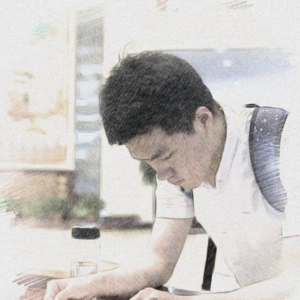
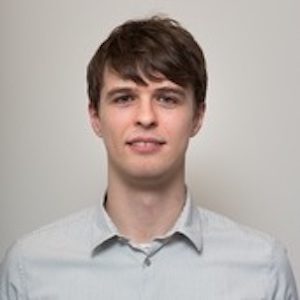
Derek Inman
Kavli Institute for the Physics and Mathematics of the Universe at University of Tokyo
Postdoc
I am a postdoc at Kavli IPMU. I research cosmology, specifically structure formation, cosmic neutrinos and primordial black holes. I am also interested in high performance computing.
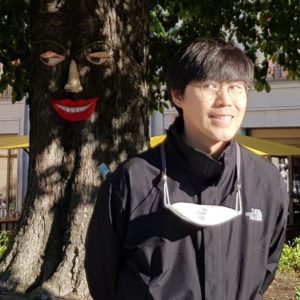
In Sung Jang
Kavli Institute for the Physics and Mathematics of the Universe at University of Tokyo
Post-doctoral researcher
I'm a post-doctoral researcher at the astronomy&astrophysics department of the University of Chicago.
My scientific interest is mostly about the distance scale of the Universe (Ph.D thesis), particularly using the tip of the red giant branch (TRGB) as a distance indicator to measure the value of the Hubble constant.
I'm also interested in the galactic archaeology; I use resolved stellar populations to study early evolutionary history of the Milky Way and nearby galaxies.
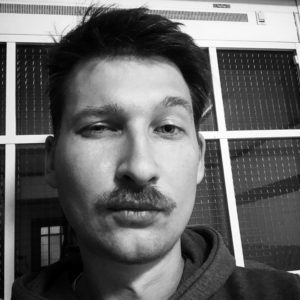
Ilya Khrykin
Kavli Institute for the Physics and Mathematics of the Universe at University of Tokyo
Postdoctoral Researcher
My research is focused on understanding how the supermassive blackholes that power luminous high-redshift quasars evolved through cosmic times, and how they influence the physical processes in the intergalactic medium (IGM) and reionization. I do it through the analysis of the so-called quasar proximity zones and the Ly-alpha forest. Recently, I also started working on the analysis of the fast-radio bursts (FRBs). Through the analysis of their dispersion measure we are inferring the fraction of baryons that reside in the IGM.
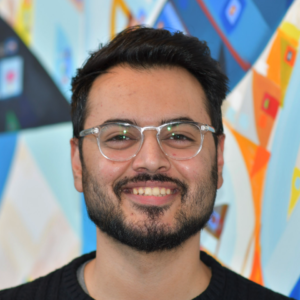
Gourav Khullar
Kavli Institute for Cosmological Physics at University of Chicago
PhD Candidate
I am a Phd Candidate at the University of Chicago working on spectrophotometric characterization of galaxy clusters and high-redshift gravitationally lensed sources, to study mass assembly and star formation histories via stellar population synthesis modeling. I work with the South Pole Telescope (SPT) Clusters collaboration, and the newly formed COOL-LAMPS collaboration (ChicagO Optically-selected Lenses: Located At the Margins of Public Surveys). Previously, I received my Masters degree from the University of Cambridge, UK, and a Bachelors degree from the Indian Institute of Technology Delhi, India. I am the co-founder of IDEA - Inclusion, Diversity and Equity in Astronomy - at UChicago, a grassroots group of early career astronomers and physicists in the Department of Astronomy & Astrophysics (A & A) and the Kavli Institute for Cosmological Physics (KICP) at the University of Chicago.
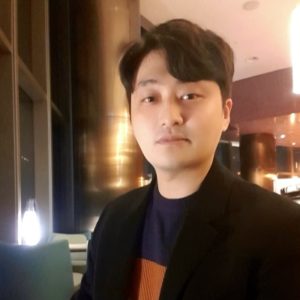
Yongjung Kim
Kavli Institute for Astronomy and Astrophysics at Peking University-Beijing
KIAA Fellow
Hello, I am a KIAA Fellow at Kavli Institute for Astronomy and Astrophysics (KIAA) in Beijing, China. I am currently working with Prof. Linhua Jiang at Peking University in Beijing, China. Before coming to KIAA, I did my Ph.D. in Astronomy at Seoul National University in Seoul, Korea, advised by Prof. Myungshin Im.
I am interested in observational astronomy with quasars along the cosmic time. Specifically, I have been working on their demography and the resultant contribution to the cosmic reionization and ionizing background in the early universe. I am also interested in the formation and growth of the supermassive black holes centered at quasars with their host galaxies along the cosmic time. Please see the Research page for detail.
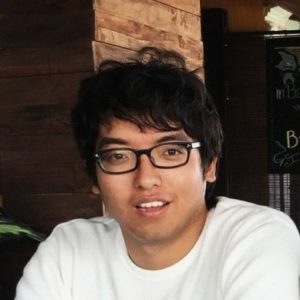
Yosuke Kobayashi
Kavli Institute for the Physics and Mathematics of the Universe at University of Tokyo
Project Researcher
I am a first postdoc researcher at Kavli IPMU. I am interested in cosmology, especially theoretical aspects of the large-scale structure of the Universe and its cosmological information. I have been working on the development of machine learning-based modeling of the redshift-space clustering of halos and galaxies, and the cosmological parameter inference as its application. I am interested in the application of statistical and machine learning schemes to cosmology.
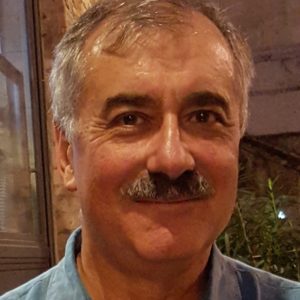
Rocky Kolb
Kavli Institute for Cosmological Physics at University of Chicago
Kavli Institute Director
Rocky Kolb is the Arthur Holly Compton Distinguished Service Professor and the David N. Schramm Director of the Kavli Institute for Theoretical Physics at the University of Chicago. He is a theoretical early-universe cosmologist.
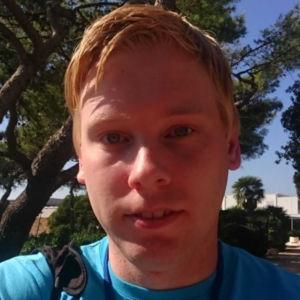
Robin Kooistra
Kavli Institute for the Physics and Mathematics of the Universe at University of Tokyo
Postdoc
I am a postdoc at Kavli IPMU working on large-scale structure and in particular the intergalactic medium and proto-clusters. By analyzing cosmological hydrodynamical simulations I study how different galactic feedback processes heat the intergalactic gas.
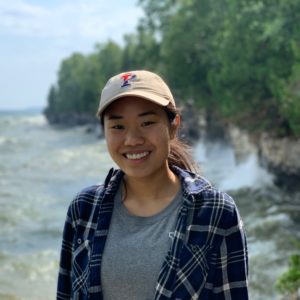
Abigail Lee
Kavli Institute for Cosmological Physics at University of Chicago
PhD Student
Abigail Lee received her B.A. in Physics from the University of Pennsylvania. Currently, Abigail is a second-year PhD student in the Department of Astronomy & Astrophysics at the University of Chicago. She works with Prof. Wendy Freedman and is interested in observational cosmology, specifically measuring the Hubble constant locally using extragalactic distance indicators.
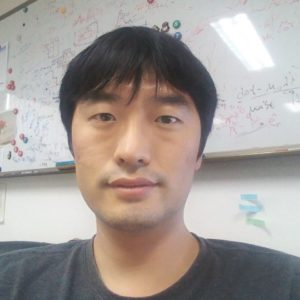
Bumhyun Lee
Kavli Institute for Astronomy and Astrophysics at Peking University-Beijing
Postdoctoral Researcher
My name is Bumhyun Lee, and I am a postdoctoral researcher in the Kavli Institute for Astronomy and Astrophysics at Peking University. I earned my PhD degree in 2019 at Yonsei University, South Korea. During my PhD, I studied the impact of ram pressure stripping on the molecular gas of cluster galaxies, using high-resolution CO data obtained from the SMA and the ALMA. In the current position, I have slightly changed my research topic. I am working on the group environmental effects on the molecular gas of galaxies, using the ALMA/ACA CO data. My research interest is to study 1) environmental effects on molecular gas and star formation of group & cluster galaxies, 2) galaxy evolution in dense environments, 3) physical conditions (e.g., density and temperature) in molecular gas using multiple transitions of molecular gas.
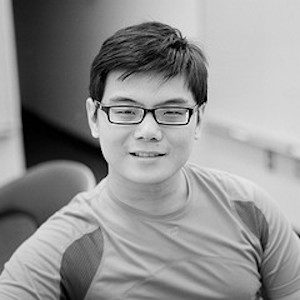
Khee-Gan Lee
Kavli Institute for the Physics and Mathematics of the Universe at University of Tokyo
Assistant Professor
I am interested in the studying the cosmic web across a range of redshifts using massively-multiplexed spectroscopic surveys, At Cosmic Noon (z~2-3), I am developing the technique of Lyman-alpha forest tomography to map the cosmic web in 3D to unveil the link the between galaxies and the cosmic web. Meanwhile, at low redshifts, I am combining spectroscopic surveys with fast-radio burst dispersion measures to measure the cosmic baryon distribution,
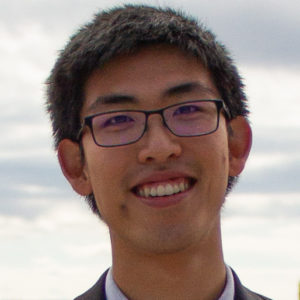
Calvin Leung
Kavli Institute for Astrophysics and Space Research at MIT
Graduate Student
I am a PhD candidate in physics at MIT with research interests in high-energy astrophysics and experimental cosmology. My PhD project is to turn the CHIME Telescope into a very long baseline interferometry experiment, with the goal of pinpointing the redshift (and the distance) of thousands of fast radio bursts with low latency. Within the CHIME/FRB collaboration I am also leading the search for gravitationally-lensed FRBs using CHIME/FRB data. This will enable FRBs to become gold-standard cosmological tools.
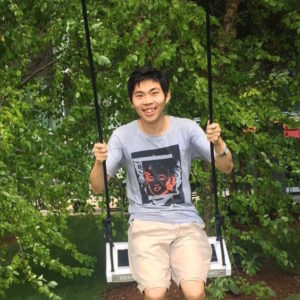
Mengxiang Lin
Kavli Institute for Cosmological Physics at University of Chicago
Kavli Institute for Cosmological Physics at University of Chicago
I am a PhD student working with Professor Wayne Hu on theoretical cosmology at KICP, UChicago. My research mainly focuses on dark energy and modified gravity in the early Universe. I study their impacts on CMB and matter power spectra, and their potential to solve the H0 tension. I also study gravitational wave propagation under modified gravity theory. I explore the possible observational consequences and constraints on modified gravity based on the current detection.
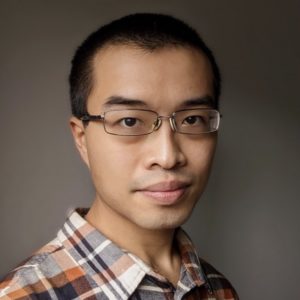
Jesse Liu
Kavli Institute for Cosmological Physics at University of Chicago
Postdoc
I am a Grainger Fellow at the University of Chicago focusing on the interplay between collider and astroparticle physics. I received my PhD from the University of Oxford, where I joined the ATLAS Collaboration to probe early-universe dynamics of the Higgs boson and dark matter recreated in the laboratory. I also have growing interests in collider measurements for cosmic-ray science and instrumentation for direct detection of axion dark matter.
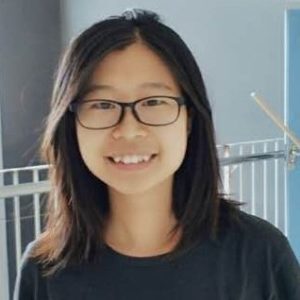
Wenxiu Li
Kavli Institute for Astronomy and Astrophysics at Peking University-Beijing
PhD Student
3rd yr PhD student in kiaa, PKU
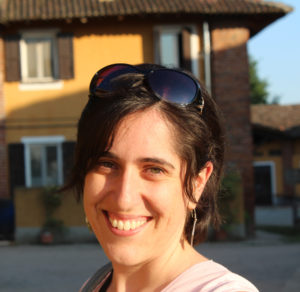
Ilaria Lonoce
University of Chicago
Postdoc
I am a postdoc at the University of Chicago and I am currently working on the derivation of stellar population radial variations in nearby elliptical galaxies and galactic globular clusters, with a principal focus on the characterization of the stellar initial mass function by means of spectral features analysis. In my PhD and first postdoc at the Astronomical Observatory of Brera (Milan, Italy) I have been investigating the stellar population properties of intermediate (z~0.6) and distant (z > 1) early-type galaxies in the field of formation and evolution of galaxies.
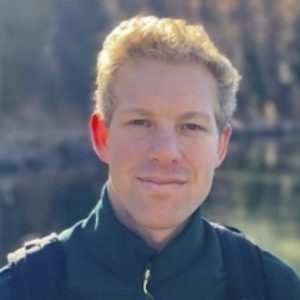
Tobias Looser
Kavli Institute for Cosmology at University of Cambridge
PhD Student
I started my PhD in Extragalactic Astrophysics at the University of Cambridge in January this year (2021) with Prof. Roberto Maiolino. Before that I was with the management consulting and technology company Accenture AG for ca. half a year, after spending an additional half a year at ETH Zürich (where I have studied physics in my bachelors and masters) to publish my master-thesis on "Optimizing high-redshift galaxy surveys for environmental information" (supervised by Prof. Simon Lilly). Next no physics and astronomy, I am excited about sailing, skiing, ski touring, mountain biking, diving and reading.
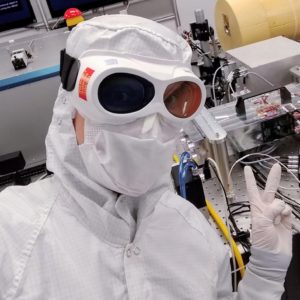
Georgia Mansell
Kavli Institute for Astrophysics and Space Research at MIT
Postdoctoral Associate
I am a postdoc with MIT Kavli Institute and LIGO Hanford Observatory, based in Richland Washington. My research is focused on instrumentation for gravitational wave detectors. I did my PhD at the Australian National University.
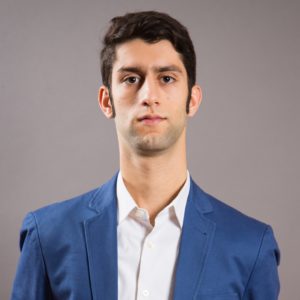
Ariel Matalon
Kavli Institute for Cosmological Physics at University of Chicago
PhD Student
I am a PhD student between the University of Chicago and Sorbonne Université in Paris. I work on instrumentation and analysis for the DAMIC and DAMIC-M experiments, which employ the bulk silicon of scientific charge-coupled devices (CCDs) to search for ionization signals produced by particle dark matter. My advisors are Paolo Privitera and Antoine Letessier Selvon.
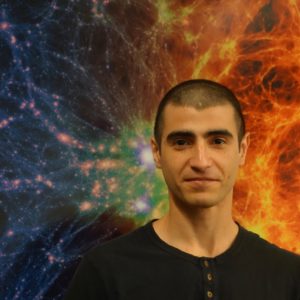
Juan Mena-Parra
Kavli Institute for Astrophysics and Space Research at MIT
MIT Kavli Fellow
Juan is an observational cosmologist that designs and builds novel instrumentation to improve the understanding of the origin, composition, and evolution of the Universe. His work drives the development of modern and next-generation radio telescopes that require unprecedented levels of signal processing power to unlock their scientific potential, including the world’s largest radio correlator and the world’s most powerful radio transient detector. Juan also analyzes and interprets the data from these instruments to advance our knowledge of the universe, from its expansion history to the nature of the radio transient sky.
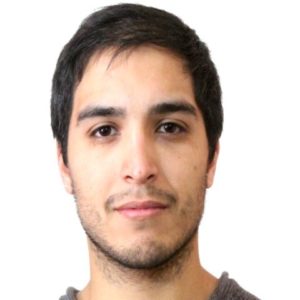
Juan Molina
Kavli Institute for Astronomy and Astrophysics at Peking University-Beijing
PhD in Astronomy
My name is Juan Molina, I am a Chilean astronomer doing my first postdoc in KIAA at Peking University.
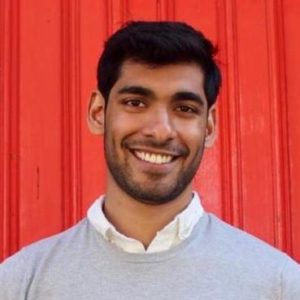
Daniel Muthukrishna
Kavli Institute for Cosmology at University of Cambridge
Ph.D. Candidate
I am in my final few months of my PhD in Astrophysics at the University of Cambridge. My PhD focuses on applying novel machine learning architectures to discover explosive astronomical transients such as supernovae. I have two undergraduate degrees in Engineering (Electrical & Aerospace) and Physics. My expertise is in data analysis, dealing with big data, deep learning, and preparing for the large data volumes in upcoming survey telescopes. I have also previously worked as a Radio Frequency Engineer.
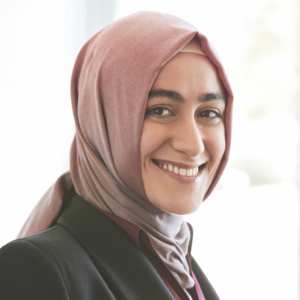
Burcin Mutlu-Pakdil
Kavli Institute for Cosmological Physics at University of Chicago
Postdoc
Dr. Burçin Mutlu-Pakdil earned her Ph.D. at the University of Minnesota, and her undergraduate degree is from Bilkent University in Turkey. She is currently an NSF & KICP Postdoctoral Fellow at the University of Chicago. She has been honored as a 2018 Ted Fellow and 2020 TED Senior Fellow, featured in National Geographic as a “woman of impact”, named a 2019 AAAS IF/THEN Ambassador (an award meant to increase the visibility of women leaders in STEM careers on the national stage), and featured in a Science Friday film documentary, “Breakthrough: Portraits Of Women In Science”. She spends most of her time searching for hierarchical structure at the scale of dwarf galaxies as a novel test of the Cold Dark Matter paradigm. She uses data gathered in a large range of wavelengths from premier telescopes worldwide and wants to learn more about how the Universe came to be the way it is today.
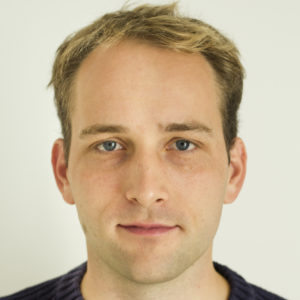
Peter Orel
Kavli Institute for Particle Astrophysics and Cosmology at Stanford University
Senior Research Engineer
I am an electronics engineer with more than 13 years of experience in the design and testing of instrumentation electronics. I have extensive experience in research and development of high performance, high precision and high reliability electronic instruments ranging from particle accelerator diagnostics and control systems, detector readout systems, and implantable medical devices. I am an expert in analog circuit design and testing for both PCB and ASIC implementations, data acquisition, design for manufacturing and industrial product development. I worked in both the academic and industrial sectors acquiring knowledge, skills, and strategies to take an idea all the way from a benchtop prototype to a deployable self-contained instrument. Currently I am working on the integrated readout electronics for the Athena WFI instrument and the proposed HXDI for LYNX
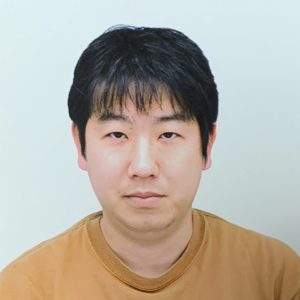
Hyunbae Park
Kavli Institute for the Physics and Mathematics of the Universe at University of Tokyo
Postdoctoral Researcher
Grew up in South Korea and finished bachelor's degree in astronomy at Seoul National University in 2010. Studied at University of Texas at Austin to finish the PhD course in 2015. From 2015 to 2018, worked at Korea Astronomy and Space Science institute to fulfill the mandatory national service. Became a posdoc of Kavli IPMU in 2019.
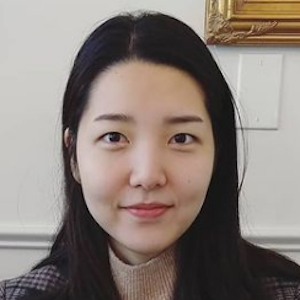
Ji Won Park
Kavli Institute for Particle Astrophysics and Cosmology at Stanford University
Ph.D. student
I'm a Ph.D. student in physics at Stanford University working on cosmology with strong gravitational lenses. My focus has been to develop Bayesian deep learning tools in preparation for the dramatic increase in data volume we anticipate with the Rubin Observatory Legacy Survey of Space and Time (LSST). I'm interested in uncertainty quantification and hierarchical Bayesian modeling as applied to images, time series, and catalogs of strongly lensed AGN.
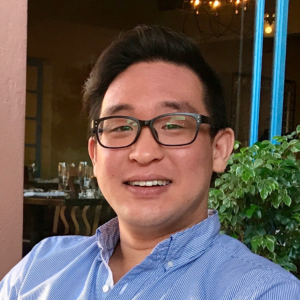
Youngsoo Park
Kavli Institute for the Physics and Mathematics of the Universe at University of Tokyo
Postdoctoral Fellow
My research revolves around making cosmological inferences with large scale structure data, from phenomenological modeling of observables to robust statistical tests of GR and LCDM. I've worked with several current and future wide-field galaxy surveys to this end, including DES, HSC-SSP, and PFS. Before coming to IPMU I was a postdoc at the University of Arizona, and before that I did my Ph.D at the University of Chicago. I count three Kavli Institutes I've belonged to so far: MKI (undergrad), KICP (Ph.D), and IPMU (now)!
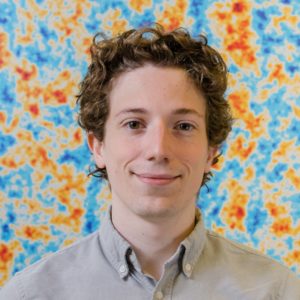
Sam Passaglia
Kavli Institute for the Physics and Mathematics of the Universe at University of Tokyo
Postdoctoral Fellow
I am a postdoctoral fellow at the University of Tokyo’s Kavli Institute for the Physics and Mathematics of the Universe. My work focuses on learning about the physics of the early universe from cosmology, and in particular I'm interested in observational signals of cosmic inflation, like black holes and gravitational waves.
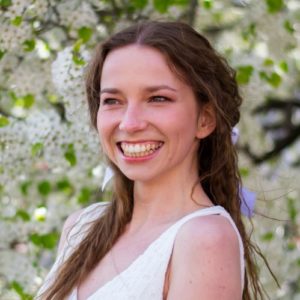
Joanna Piotrowska
Kavli Institute for Cosmology at University of Cambridge
PhD Student
Born and raised in Warsaw, Poland, moved to Cambridge to pursue an undergraduate degree in Natural Sciences/Astrophysics. Inspired by the wonderful people in the department I stayed on to do my PhD with Roberto Maiolino and Asa Bluck.
In my work I investigate processes responsible for bringing star formation to a halt in galaxies, focusing on the role of supermassive black holes. I actively combine theoretical predictions from cosmological simulations with large spectroscopic surveys to bridge the gap between cutting edge simulations and observations in the field.
Outside of research I am passionate about science outreach and art - during the pandemic I have been actively engaging in online talks and streams, sharing the joy of astrophysics in both English and Polish.
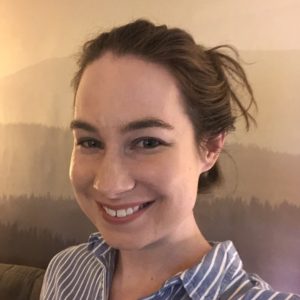
Meredith Powell
Kavli Institute for Particle Astrophysics and Cosmology at Stanford University
Porat Postdoctoral Fellow
I am a Porat Postdoctoral Fellow at the Kavli Institute for Particle Astrophysics and Cosmology (KIPAC) at Stanford University. I research the growth of supermassive black holes and how they co-evolve with the galaxies and dark matter halos that host them. My current focus is measuring and interpreting the statistics of how Active Galactic Nuclei (AGN) are clustered, in order to investigate the role of large-scale environment on black hole accretion. I did my undergraduate work at UC Davis, and received my PhD in Physics from Yale University. Beyond astrophysics, I enjoy traveling, playing music (piano and viola), and painting.
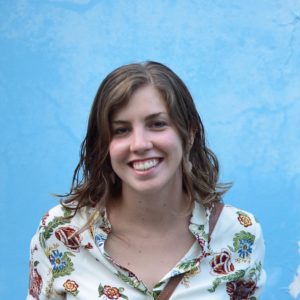
Judit Prat
Kavli Institute for Cosmological Physics at University of Chicago
Postdoctoral Scholar
I am a postdoctoral scholar at the University of Chicago collaborating with Prof. Chihway Chang. I am an active member of the Dark Energy Survey and the LSST Collaborations, where I’m mostly working on obtaining Cosmological constraints from Weak Gravitational Lensing measurements. Before that, I received my PhD in the High Energy Physics Institute (IFAE) from the Autonomous University of Barcelona. More information about me here: https://kavlicosmo.uchicago.edu/people/profile/judit-prat/
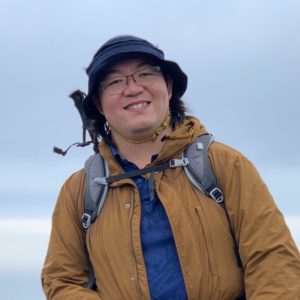
Tian Qiu
Kavli Institute for the Physics and Mathematics of the Universe at University of Tokyo
Graduate Student
I am a third year graduate student in Kavli IPMU. I am interested in Galactic Archaeology and working on proper motions of stars in the Galaxy. I am also searching for the faint white dwarfs via Subaru HSC. Those hot topics such as machine learning in searching for the stellar streams and so on are quite attractive to me. Besides, I like outdoor sports such as hiking, riding, etc. As a student, I'd like to learn about the career path and relevant experience in this forum.
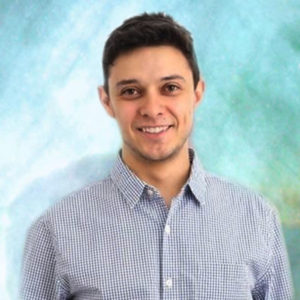
Lucas Secco
Kavli Institute for Cosmological Physics at University of Chicago
Postdoc
I'm currently a KICP Fellow at the University of Chicago, where I collaborate with the Survey Science group, and an active member of the Dark Energy Survey (DES) collaboration. My main research focus is in observational cosmology using weak lensing and I recently co-led the DES analysis of cosmic shear in its Year-3 data release. In 2020 I obtained my PhD from the University of Pennsylvania, and before that my Masters degree from the University of São Paulo, in Brazil, where I'm originally from.
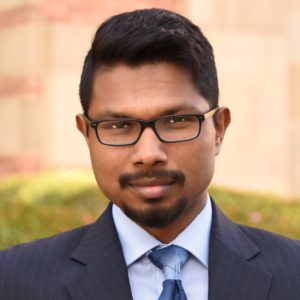
Anowar Shajib
Kavli Institute for Cosmological Physics at University of Chicago
Postdoctoral Scholar
Postdoc in Astronomy, University of Chicago, 2020-present
Ph.D Astronomy, University of California, Los Angeles, 2020
B.S. Physics, University of Tokyo, 2014
Research interests: Strong gravitational lensing, galaxy evolution, observational cosmology, machine learning and astrostatistics
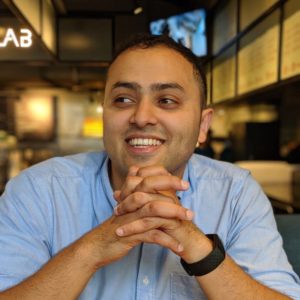
Shravan Shetty
Kavli Institute for Astronomy and Astrophysics at Peking University-Beijing
Postdoc
I am a postdoc fellow at KIAA in Beijing. I am interested in the evolution of galaxies and their stellar populations. I am interested in the workshop to get a better understanding about the job application process and how I can tailor my applications to the particular job openings, academic and non-academic.
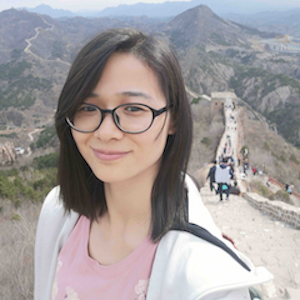
Jingjing Shi
Kavli Institute for the Physics and Mathematics of the Universe at University of Tokyo
Postdoc
My name is Jingjing Shi. I am a postdoc in Kavli IPMU now. I study various aspect on large-scale-structure and galaxy formation and evolution. My current main interests are on the intrinsic alignment and galaxy halo connection.
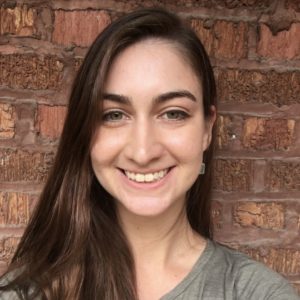
Nora Shipp
Kavli Institute for Cosmological Physics at University of Chicago
PhD Student
I am a finishing PhD student at the University of Chicago and an incoming postdoc at MIT. I work on the discovery, analysis, and modeling of stellar streams in the Milky Way with the goal of understanding the distribution and properties of dark matter in the Local Universe.
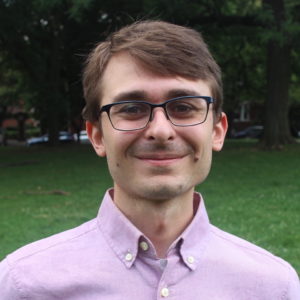
Daniel Smith
Kavli Institute for Cosmological Physics at University of Chicago
Graduate Student
I am a graduate student at the University of Chicago working with Prof. Abigail Vieregg in experimental ultra-high energy neutrino astronomy. My involvement in the group includes antenna development, simulations of the future IceCube Gen-2 experiment, and construction, deployment and data analysis for the future RNO-G experiment. Before graduate school, I was a student at Boston University, Fermilab and CERN, primarly using machine learning techinques for data reconstruction of high resolution Liquid Argon Time Projection Chamber (LArTPC) data for the LArIAT experiment.
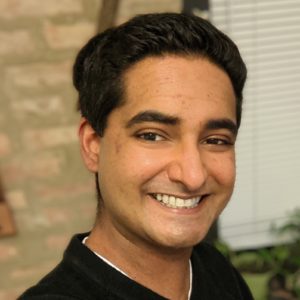
Joshua Sobrin
Kavli Institute for Cosmological Physics at University of Chicago
Ph.D. Student
I am a physics Ph.D. candidate at the University of Chicago, where I work with the South Pole Telescope collaboration to develop experiments to study the CMB. I completed my B.S. degree at Fordham University, with concentrations in physics and religious studies. Prior to beginning my Ph.D. program, I completed a program in the Philosophical Foundations of Physics (M.A.) at the Columbia University.
My doctoral research has involved developing and characterizing the cryogenics and optics systems of SPT-3G. I am now working on building a mass-limited catalog of SZ-selected galaxy clusters using two years of SPT-3G data.
I enjoy teaching physics to undergraduates, and am passionate about implementing evidence-based teaching methods to create meaningful and inclusive learning experiences. Additionally, I am co-creator of First Discoveries, a program to foster scientific thinking at the early-childhood age.
I am new student of guitar, and longtime student of Jeet Kune Do and boxing.
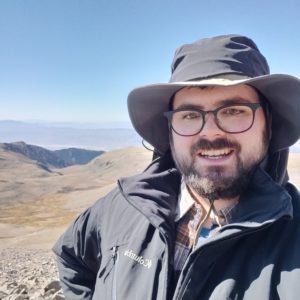
Dan Southall
Kavli Institute for Cosmological Physics at University of Chicago
Graduate Student
I was born in Nova Scotia, Canada. My undergraduate degree was in Physics and Astronomy at the University of Waterloo. During my undergrad I did some condensed matter research on campus, but the majority of my undergraduate research experience resulted from full-time work terms I completed as part of my co-op degree. These work terms included about 2 years full-time experience split amongst being a STEM tutor, as a research assistant in nuclear physics with the GRIFFIN experiment at TRIUMF, and as a research assistant for CCD and CMOS sensor development at Teledyne DALSA. I am currently a 4th year graduate student at the University of Chicago working with Dr. Abigail Vieregg in experimental ultra-high-energy neutrino astronomy. My research involves antenna design, simulations, and data analysis, all pertaining to experiments that search for neutrino-induced radio signals in California, Greenland, and Antarctica.
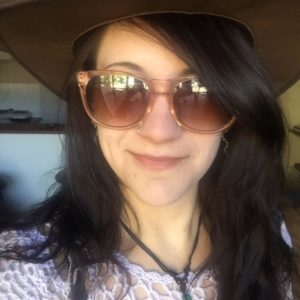
Samantha Stever
Kavli Institute for the Physics and Mathematics of the Universe at University of Tokyo
Visiting Associate Scientist
S. Stever completed her Ph.D. in astrophysics at the University of Paris-Saclay in Paris, France, before moving to Kavli IPMU as a postdoctoral fellow. During her fellowship, she worked primarily on the LiteBIRD space mission led by the Japanese space agency. Her work focuses on systematic effects in low temperature detection systems, and how to prevent those systematic effects. After the first year of her fellowship, she moved to Okayama University as an Assistant Professor. She remains an affiliated member of Kavli IPMU.
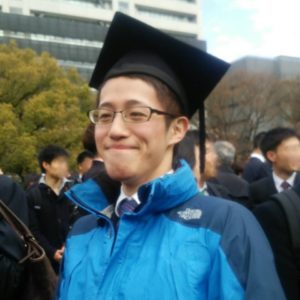
Sunao Sugiyama
Kavli Institute for the Physics and Mathematics of the Universe at University of Tokyo
PhD Student
I am a PhD student majoring in observational cosmology. I am especially interested in the nature of dark matter and studying it by using the gravitational lensing effect. I am leading the project of the large-scale cosmology analysis of the weak lensing data taken by Subaru Hyper Suprime-Cam (HSC), which is one of the main science goals of Subaru HSC. I am also leading the project to explore the primordial black hole, which might have formed in the early universe, by using the microlensing observation by Subaru HSC.
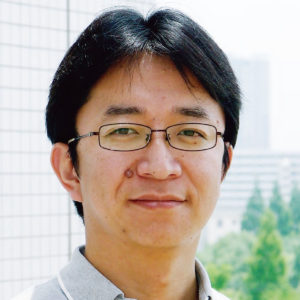
Masahiro Takada
Kavli Institute for the Physics and Mathematics of the Universe at University of Tokyo
Professor
My research interest lies in cosmology, more specifically nature of dark matter and dark energy. The goals of my research is to understand these dark components from precise measurements of galaxy and dark matter distributions obtained from wide-area Subaru galaxy surveys, in combination with external datasets.
I have been working at Kavli IPMU since 2008, as a senior faculty member. Prior to this position, I worked at Tohoku University as an assistant professor for 2004 - 2008, and worked at University of Pennsylvania as a postdoc researcher for 2001 - 2004.
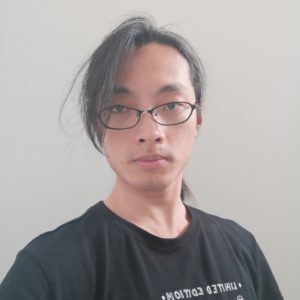
Shenli Tang
Kavli Institute for the Physics and Mathematics of the Universe at University of Tokyo
An observer, quasar hunter.
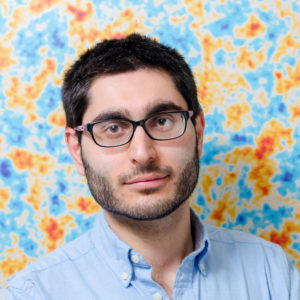
Dimitrios Tanoglidis
Kavli Institute for Cosmological Physics at University of Chicago
PhD Student
I am a fifth-year PhD student at the department of Astronomy & Astrophysics at the University of Chicago and KICP. My research interests lie in cosmology, analysis of large galaxy surveys, and data science applications in astrophysics. Specifically I have worked on the the discovery and analysis of Low Surface Brightness Galaxies from the Dark Energy Survey Data using machine learning and deep learning. Before coming to Chicago, I received my BSc and MSc in Physics from the University of Crete, Greece.
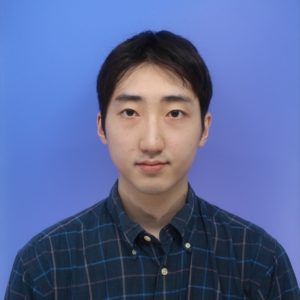
Ryo Terasawa
Kavli Institute for the Physics and Mathematics of the Universe at University of Tokyo
Graduate Student
I am a graduate student at Kavli IPMU. I am working on Super-Sample Covariance using N-body simulations.
I hope to get an academic position. Especially, I am interested in how to get a postdoc position.
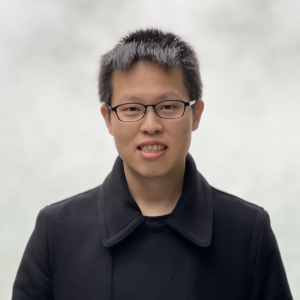
Chun-Hao To
Kavli Institute for Particle Astrophysics and Cosmology at Stanford University
Graduate Student
I am a 5th year PhD student working with Prof. Risa Wechsler. I am an active member in the Dark Energy Survey, where I mostly work on combining cluster abundance and various two-point correlation functions to constrain cosmological parameters. More information about me and my work can be found here https://chunhaoto.com/
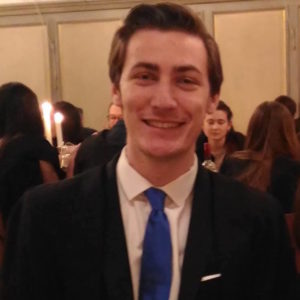
James Trussler
Kavli Institute for Cosmology at University of Cambridge
Research Assistant
I recently completed my PhD at the University of Cambridge, where I utilised the statistical power of the largest spectroscopic survey of our time — the Sloan Digital Sky Survey — to identify the physical processes that are primarily responsible for shutting down star formation in galaxies (commonly referred to as quenching). In order to do so, I developed and applied an innovative new technique to investigate galaxy quenching, that focusses on the chemical transformation that takes place during the transition from star-forming to passive. Utilising this technique, I investigated how galaxy quenching depends on both the internal properties of galaxies (i.e. stellar mass) and external factors (i.e. environment), and how quenching operates within galaxies. Looking to the future, I will draw upon the next-generation of spectroscopic facilities (JWST, MOONS, Euclid and 4MOST) to study the cosmic past, as I investigate the evolution and quenching of galaxies at high-redshift.
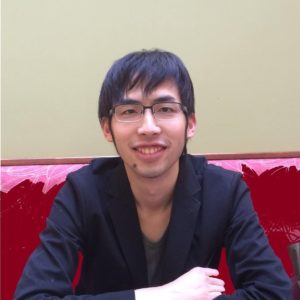
Yu-Dai Tsai
Kavli Institute for the Physics and Mathematics of the Universe at University of Tokyo
Research Associate
I work on fundamental physics, developing new models, terrestrial experiments, and astrophysical observations to study the laws of nature.
Recently I have been studying dynamical data of trans-Neptunian objects (TNO) and exoplanets to probe ultralight axion-like particles, gauge basons, and fuzzy dark matter. I have also been studying neutron star and black hole mergers to probe dark matter and primordial black holes.
Previously, I proposed target models for dark matter direct detections and accelerator searches, including Elastically Decoupling and Kinetically Decoupling Dark Matter, and developed Resonant Self-Interacting Dark Meson models inspired by QCD that can help explain the small-scale structure observations in astrophysics.
I also proposed new experiments, including FerMINI and FORMOSA, to search for millicharge dark sector at fixed-target experiments at Fermilab and the LHC collider experiment at CERN. I also proposed LongQuest experiment to study long-lived particles.
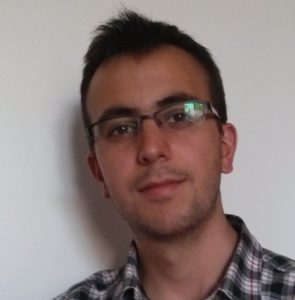
Valeri Vardanyan
Kavli Institute for the Physics and Mathematics of the Universe at University of Tokyo
Postdoc
I am a postdoc at Kavli IPMU specializing in cosmology in general. My research interests include multi-messenger probes in cosmology, gravitational waves, and the phenomenon of cosmic acceleration.
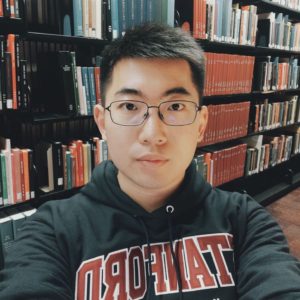
Yunchong Wang
Kavli Institute for Particle Astrophysics and Cosmology at Stanford University
PhD Candidate
Orginally from Beijing, China. 2nd-year PhD student working with Prof. Risa Wechsler. Main interests in galaxy formation and cosmology, mostly doing theoretical work related to empirical modeling and numerical simulations. Currently working on modeling dwarf galaxies with UniverseMachine. Also working on a side project with Prof. Tom Abel on understanding large scale structure with k-Nearest-Neighbor summary statistics.
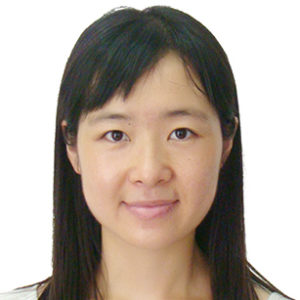
Yanxia Xie
Kavli Institute for Astronomy and Astrophysics at Peking University-Beijing
Postdoc
I study the coevolution between supermassive black holes and galaxies. In particular, I am looking for the observational evidence of AGN feedback by quantifying the star formation rate, interstellar medium content, and their physical properties of host galaxies. Most of my recent research focus on the polycyclic aromatic hydrocarbons (PAHs) of quasar hosts. Meanwhile, I also spend some time studying the dust extinction curves of AGN with theoretical modeling.
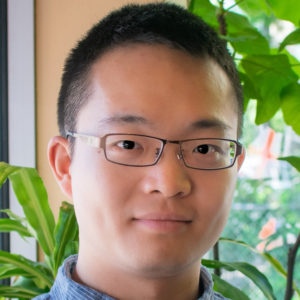
Zhilei Xu
Kavli Institute for Astrophysics and Space Research at MIT
Postdoc
I am an astrophysicist interested in studying the beginning and the evolution of the Universe, especially through observing the 21-cm signal and cosmic microwave background (CMB). In addition, I am also interested in the formation and evolution of galaxies and galaxy clusters. I am a member of the HERA collaboration in 21-cm and CLASS, SO, ACT, CMB-S4 collaborations in CMB.
I got my bachelor degree from the University of Science and Technology of China (USTC) in 2011 and joined the Johns Hopkins University (JHU) for my Ph.D. study. After graduating from JHU in 2017, I spent three years at the University of Pennsylvania for a postdoctoral position. Now I am a postdoctoral associate at the Massachusetts Institute of Technology (MIT).
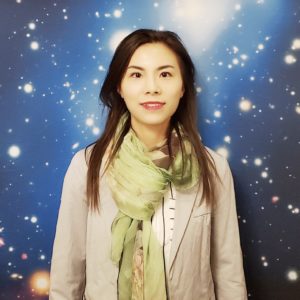
Jun Yang
Kavli Institute for Astrophysics and Space Research at MIT
I measure the atomic to dust abundance ratio of silicon towards the Galactic Bulge. I am also studying the high-mass X-ray binaries in M33 and Magellanic Clouds from the NuSTAR, XMM-Newton and Chandra observations.
My research includes the analysis for large multi-wavelength observations of neutron stars (NSs) and black holes discovered in soft-to-hard X-rays; time domain astrophysics: X-ray and optical studies of transients and variability of NSs in binaries to probe extreme physics phenomena and constrain NS populations; and optical variability studies of stars with follow-up spectroscopy to constrain formation and evolution of NSs.
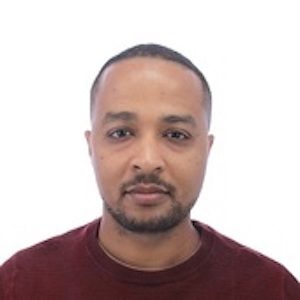
Hassen Yesuf
Kavli Institute for the Physics and Mathematics of the Universe at University of Tokyo
Kavli IPMU-KIAA Post-doctoral Fellow
I am interested in star formation and structure of galaxies. I focus on applying modern statistical and machine learning methods to analyze and interpret multidimensional data of galaxies.
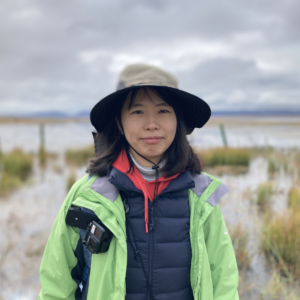
Nannan Yue
Kavli Institute for Astronomy and Astrophysics at Peking University-Beijing
Post-doc
I mainly work on radio astronomy and an observer. Star formation in our Milky Way, the evolution of ISM, are my interests. I use the telescopes such as, ALMA, SMA, JCMT, FAST, to observe the dense and cold molecular clouds, where the new stars begin to born.
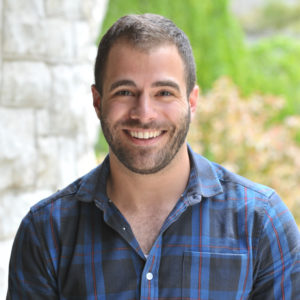
Michael Zevin
Kavli Institute for Cosmological Physics at University of Chicago
NASA Hubble Fellow
Dr. Michael Zevin is a NASA Hubble Fellow at the University of Chicago working to understand the lives and deaths of stars using phenomena known as gravitational waves. He received his PhD from Northwestern University in 2020, and his BS with majors in Astronomy and Physics from the University of Illinois Urbana-Champaign.
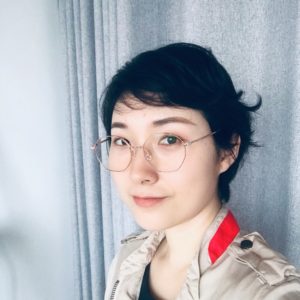
Yulin Zhao
Kavli Institute for Astronomy and Astrophysics at Peking University-Beijing
Ph.D candidate
· Education:
2013–2019 Peking University, Beijing, China
Ph.D., Astronomy (June, 2019)
Advisor: Luis C. Ho
2009–2013 Chengdu University of Technology, Sichuan, China
B.S., Applied Physics (2013)
· Research Interests:
Coevolution of supermassive black holes and active galaxies
Morphological study of AGN host galaxies
Statistical data analysis
· Skills
Computer Proficient in PowerPoint, Word, Excel, IDL, LaTex, IRAF/PYRAF, GALFIT
Experienced in Hubble Space Telescope photometric data reduction ( optical and near-infrared) with IDL and IRAF/PyRAF
Familiar with C and Python programing, Bash
· Publications:
Yulin Zhao et al 2021 ApJ 911 94: The Diverse Morphology, Stellar Population, and Black Hole Scaling Relations of the Host Galaxies of Nearby Quasars
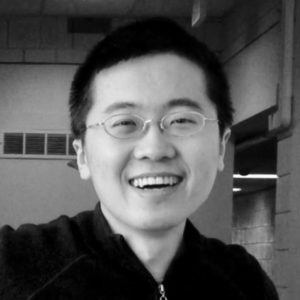
Yiming Zhong
Kavli Institute for Cosmological Physics at University of Chicago
Postdoc
My research area is theoretical particle physics. I am interested in the search for Dark Matter, hidden sectors, and New Physics through cosmological and astrophysical observations and particle experiments. I received my Ph.D. at C.N. Yang Institute for Theoretical Physics, Stony Brook University. I was then a postdoctoral research associate at Boston University before moving to Chicago.
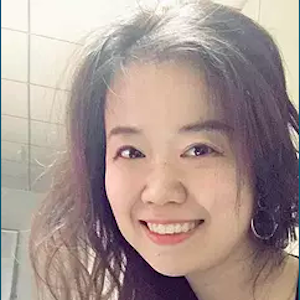
Siwei Zou
Kavli Institute for Astronomy and Astrophysics at Peking University-Beijing
Postdoc
I am an astrophysicist working at Kavli Institute of Astronomy and Astrophysics, Peking University. My research interests include observation and simulation of circumgalactic medium and interstellar medium in and around high redshift galaxies, and how does the gas regulate galaxy formation and evolution. I am also interested in linking these gas with the first generation of stars.